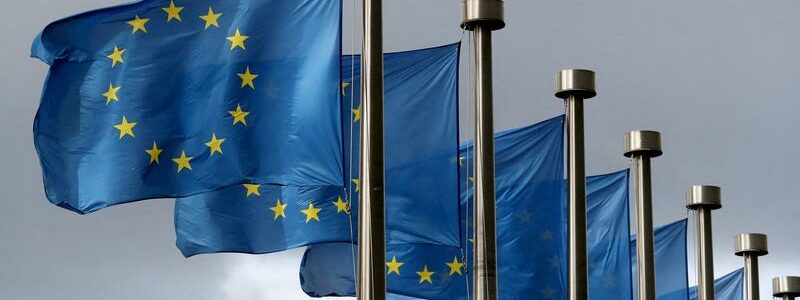
EU Commission proposes three new EU taxes to repay recovery fund borrowing
BRUSSELS (Reuters) – The European Commission proposed on Wednesday three new taxes in the 27-nation bloc that over the coming decades would bring cash to repay the joint borrowing of all EU governments for the 800 billion euro recovery fund.
The first will introduce a levy on CO2 emitted by fuels for buildings and cars under a new carbon market, while using the EU’s existing carbon trading system to impose CO2 costs on ships and increase existing payments for airlines.
A quarter of such CO2 revenues, which currently go to governments, would in the future go to the EU budget, providing 12 billion euros annually on average from 2026 to 2030, the Commission proposed.
The second measure would tax imports of goods made in countries with weaker CO2 emissions standards, so as to equalise the cost in terms of CO2 emissions to what manufacturers would have paid had the goods been made in the EU.
The Commission proposed that three quarters of the new border levy, called the carbon border adjustment mechanism (CBAM), should go to the EU budget, providing around 1 billion euros per year on average over 2026-2030.
The third tax would give the EU budget a 15% share of the residual profits from large multinational companies that will be re-allocated to EU countries under the recent G20 and OECD agreement on a re-allocation of taxing rights.
Once agreed, revenues for the EU budget from such a corporate tax could amount to roughly between 2.5 billion and 4 billion euros per year.
The EU budget needs the extra revenues to be able to repay the unprecedented joint borrowing for the 800 billion euros recovery fund that is to be paid back until the end of 2058.
The Commission proposals will now be negotiated with the European Parliament and EU governments grouped in the EU Council. The Commission also intends to propose a second package of taxes to repay the recovery borrowing by the end of 2023.
Countries are already squabbling over the plans. The proposed new carbon market – which would charge fuel suppliers for the CO2 emitted by cars and home-heating – has been met with resistance from some states concerned about the social fallout.
Polish climate minister Anna Moskwa said the proposal “is not possible to accept” and would impose an “increased burden” on vulnerable citizens, at a meeting of EU ministers on Monday.
The Commission has said part of the new EU levies should form a fund to shield low-income households from potential costs, for example by subsidising home renovations to curb energy bills.
Source: Read Full Article